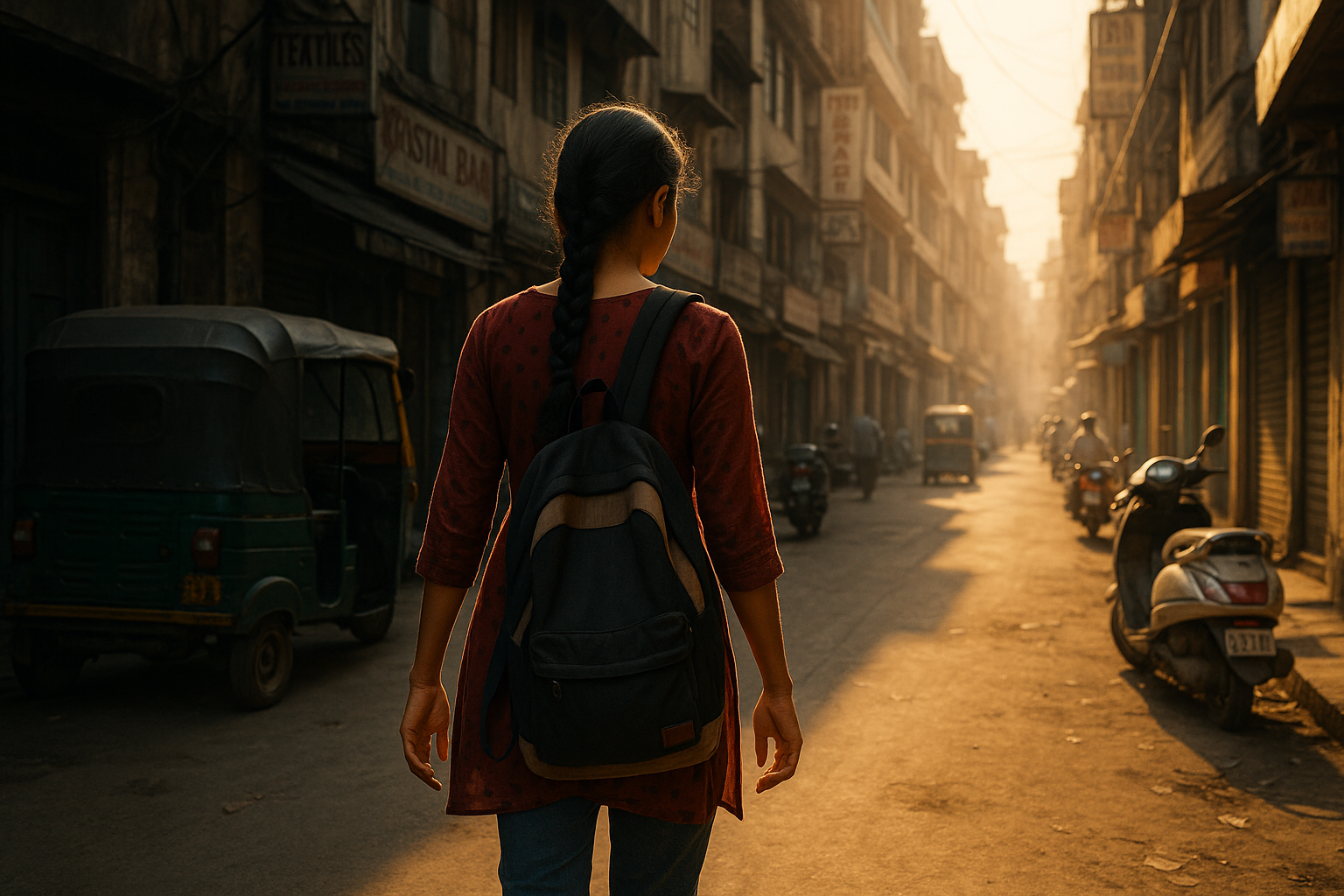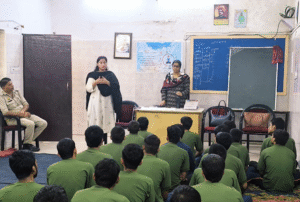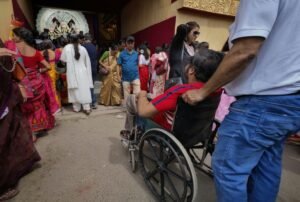
It was an unbearably hot summer afternoon when I found myself buried in urgent administrative work, scribbling notes in my notepad. The stillness of the Child Welfare Committee (CWC) office was soon disrupted by the arrival of a young girl, accompanied by an Investigation Officer. She seemed timid yet curious, glancing around as the initial formalities were completed.
The child was soon seated before the Legal Aid Counsel, who gently engaged her in a conversation. As he scrolled through his mobile phone, she instinctively opened her Instagram account. Though I could not hear their exchange, it was evident that the lawyer was making her feel at ease—a moment of comfort in an otherwise overwhelming situation.
Moments later, the Investigation Officer approached me with the case papers. As I skimmed through the documents, my heart sank. The girl, barely in her teens, was pregnant. This was after she had been trafficked to Delhi at the age of 12 and forced to engage in sex work. In addition, she was accused in a criminal case of robbery. This placed her in a dual status under the Juvenile Justice (JJ) Act—both as a child in need of care and protection, and a child in conflict with the law.
After interacting with her, I discussed the case with the CWC bench. Acting in her best interest, and taking into account her right to participate and her evolving capacity as an older child, the decision was made to proceed with the termination of pregnancy. This was in line with her wishes.
Following the medical procedure, the Investigation Officer updated the CWC about her well-being. Recognising the challenges she faced, iProbono India was appointed as her Support Person. The Social Investigation Report (SIR) later revealed that sending her back to her village—a location far from Delhi—would not be in her best interest. With no formal education and a traumatic past, she struggled in the Observation Home she was placed in by the Juvenile Justice Board (JJB) because she was accused of a crime, where she was housed with older female inmates. The iProbono India team worked diligently to ensure her placement in an appropriate Child Care Institution (Children’s Home) for long-term rehabilitation.
iProbono India also provided legal representation in the JJB. After an uphill battle in which she was pressured to plead guilty for a crime she did not commit, she was ultimately discharged and the chargesheet against her was quashed when it came to light that her name was not mentioned in the original FIR. She had thus been unjustly confined in the Observation Home.
After getting discharged, she was sent to a Children’s Home by the CWC. In the Children’s Home, she began to find a sense of safety and belonging. Regular counseling and psychosocial support played a crucial role in her transformation. She received non-formal education and vocational training in tailoring, beauty culture, and artwork. Gradually, she began to reclaim her childhood, her laughter returning as she adjusted to her new environment.
Meanwhile, her mother, accompanied by a man unknown to the child, who appeared to have ulterior motives, approached the CWC seeking custody. The mother appeared vulnerable, and the circumstances raised suspicions that this man was a trafficker. Considering the past history and SIR findings, the CWC denied restoration when iProbono India and the Children’s Home raised these concerns, prioritising the child’s safety.
After she turned 18, she transitioned into an Aftercare Facility (which provides care and support to children who have aged out of the system but require further institutional and/or financial support from the state). She successfully completed the Para Legal Volunteer (PLV) training provided by the District Legal Services Authority (DLSA) and a hospitality industry course offered by an NGO. Her resilience and determination paid off—she secured employment as a Para Legal Volunteer at the Dwarka Court, where she now works.
Her remarkable journey from trauma to triumph was made possible by the collective efforts of the CWC, Children’s Home, iProbono India, and various organisations that supported her rehabilitation. Today, she stands as a beacon of hope—a testament to what timely intervention, legal support, and holistic care can achieve for vulnerable children. Her story is not just about survival; it is about transformation, empowerment, and a second chance at life.
*This article is written by Vaidehi Subramani, Board Member at iProbono India, former Chairperson of the Child Welfare Committees in South and South-East Delhi, and Social Worker Member at a Juvenile Justice Board. With over 20 years of experience, she has worked extensively in the child protection sector in Delhi and Chennai.












